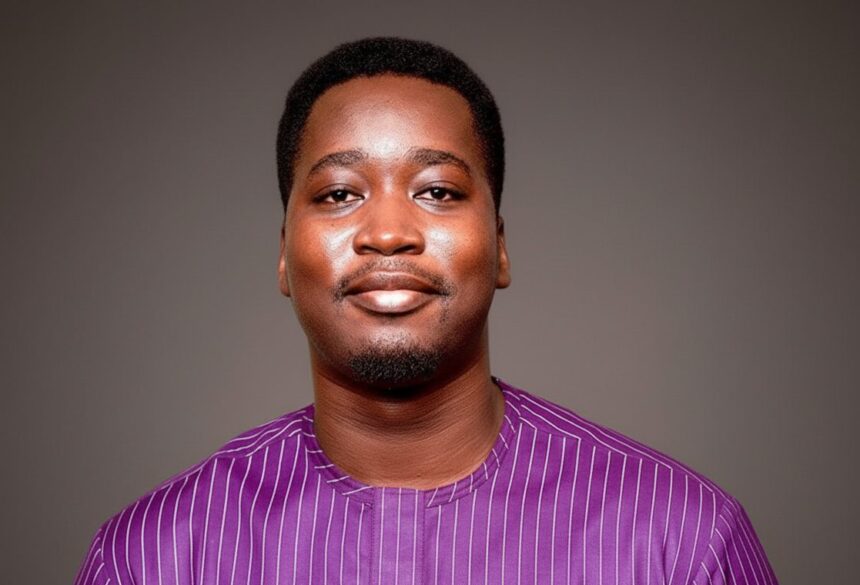Oyemade Oyemaja, co-founder of Ennoble Technology, has built Neoform AI, a tool that translates and transcribes English into different Nigerian languages
The platform is designed to work on low-end devices and weak internet connections, ensuring accessibility for the majority of Nigerian users.
Neoform AI serves businesses such as banks, call centers, e-commerce platforms, and EdTech companies. By addressing Nigeria’s linguistic diversity, Oyemaja aims to bridge a critical gap in AI adoption.
“Mark’s not going to build for us. Satya is not going to build for us. And even if they do, they lack the local nuance that would make it fit into our context,” he says.
What Neoform AI Does
Unlike generic translation tools, Neoform AI partners with native speakers to develop algorithms that incorporate cultural context, dialects, and regional expressions.
This ensures English phrases translate naturally into local equivalents, rather than producing awkward or literal interpretations.
The tool covers transcription, text-to-speech, and speech-to-text functionalities, making it a full-stack language AI for Nigeria and potentially for other African markets.
The Problem It Solves
Nigeria has over 520 living languages, making communication a challenge even among Nigerians themselves.
Oyemaja points out that in a room of ten people, the chances that all speak the same language are low.
“Say that the room is an escape room, the first puzzle to even solve is making sure that each person understands what the other is saying,” he says.
Oyemaja emphasizes that Neoform AI’s full-stack approach ensures it works for local conditions: low-end devices, weak connectivity, and cultural specificity.
It provides tools for both businesses and consumers, helping enterprises communicate with local clients and individuals learn their languages digitally.
Understanding Neoform Strategy
According to Oyemaja, Neoform AI follows a dual-pronged strategy, including:
- B2B: African enterprises integrate Neoform AI via API, with revenue from pay-as-you-go usage fees, enterprise subscriptions, and custom development services.
- Consumer Apps: Modeled after platforms like Duolingo, these apps teach and support Nigerian languages on a freemium-to-subscription basis.
By focusing on 22+ Nigerian languages from day one, Neoform AI seeks to differentiate itself from global competitors like Google, Microsoft, and OpenAI, whose models often overlook local dialects.
About Oyemaja
He studied Computer Science at Kwara State University, then worked as a hardware maintenance specialist and later as a lead frontend architect at Accelerex, a fintech company.
These experiences, he said, gave him a holistic view of both software and infrastructure, essential in a country where foundational tech resources are limited.
According to him, his vision for Neoform AI extends beyond translation. Over the coming years, he hopes the platform will bridge the technological and linguistic divide, empowering Nigerians at home and abroad to participate fully in the digital economy.
The AI Market
Africa’s AI market as a whole is projected to expand from $4.5 billion in 2025 to $16.5 billion by 2030, and Nigeria is among the continent’s leaders due to its large, youthful population and growing mobile internet penetration.
The market for AI training datasets is also expected to surge, with experts emphasizing the critical role of locally sourced data in building AI tools like Neoform AI that address linguistic diversity and promote digital inclusion.
According to industry analysts, these statistics highlight the potential for platforms like Neoform AI to play a pivotal role in bridging linguistic gaps and fostering digital inclusion.
Talking Points
Neoform AI tackles one of the most pressing challenges in Nigeria’s tech ecosystem: linguistic diversity. By translating and transcribing English into over 22 local languages, it ensures that AI tools are accessible to Nigerians who speak minority languages.
The platform’s focus on cultural nuance and dialects sets it apart from generic translation tools, making it a practical solution for businesses and individuals who rely on accurate communication.
This is especially critical for banks, call centers, e-commerce platforms, and EdTech companies operating across diverse linguistic regions.
At Techparley, we see how Neoform AI can accelerate digital inclusion beyond major urban centers, providing tools that work on low-end devices and with limited internet connectivity, common realities for many Nigerians.
With the right strategic support, Neoform AI has the potential to become a key driver of digital and linguistic inclusion in Nigeria, ensuring that no one is left behind in the AI revolution.





